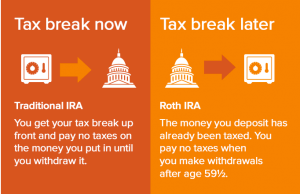
What Income Sources Affect Social Security Taxability?
Financial PlanningJun 08, 2022
Did you know that Social Security Income is tax free? If you didn’t, then this post won’t upset you. If you did, then you need to understand how different income sources affect the taxability of it before you get excited about tax free income. If you have not reached your full retirement age, you have some other things to consider. We offer insight on that in a separate post that you can find by clicking here. If you are taking Social Security early and are worried about having to pay money back based on income, your main concern is earned income. Earned income is income from employment. That means that other income sources such as retirement account distributions and pension income are not factored into whether or not you have to pay money back.
The taxability of your Social Security pertains to all income sources whether you reached your full retirement age or not. There is a formula that helps you determine whether or not your Social Security will be taxable. This is definitely something to discuss with your tax professional. The income sources that are factored into the taxability are:
- Distributions from qualified retirement account that are subject to income tax
- Distributions from any retirement account except a Roth IRA
- Pension income
- Dividends and interest
- Earnings from employment including self-employment
- Tax free interest such as municipal bond interest
The formula takes one half of your total social security income and adds it to your Adjusted Gross Income plus tax free interest. Your Adjusted Gross Income includes all of the sources above except tax free interest less your allowable deductions. For Single filers, if the result of the formula is between $25,000 and $34,000, you have to pay tax on 50% of your Social Security. If it is less than $25,000, you don’t have to pay tax. If it is over $34,000, then you owe tax on 85% of your Social Security. For Married filers, the threshold increases from $32,000 to $44,000*.
Let’s look at an example:
A married couple who files jointly has Social Security Income of $38,000 combined. They have municipal bond interest of $3,000, Roth IRA distributions of $10,000 and an Adjusted Gross Income of $8,000 made up of dividends and pension income. In the formula for determining taxability, you would take half of the $38,000 Social Security Income ($19,000) and add that to the $3,000 muni bond interest and $8,000 Adjusted Gross Income for a total of $30,000. In this example, the couple does not owe taxes on their Social Security income.
The couple referenced above really benefited from having a Roth IRA. If the $10,000 came from a Traditional IRA or a 401(k) plan, the formula total would add up to $40,000 and they would owe income tax on half of their Social Security income. This is a tremendous advantage of using a Roth IRA.
The two guarantees in life are death and taxes. This is just another reminder of the latter guarantee. We often tell people that if you’re paying more taxes, you’re making more money. While it doesn’t take away the sting of writing a large tax check, it does put things into perspective. If you have to pay taxes and you did your best to minimize them, then you are stuck with whatever tax bill remains. When you are preparing for retirement, make sure you understand your income sources. Furthermore, it may not be too late to give some consideration to a Roth IRA.
*www.ssa.gov 2020
The content is developed from sources believed to be providing accurate information. The information in this material is not intended as tax or legal advice. It may not be used for the purpose of avoiding any federal tax penalties. Please consult legal or tax professionals for specific information regarding your individual situation. The opinions expressed and material provided are for general information.
The views and opinions expressed herein are those of the speaker or writer and do not necessarily reflect the views of Alliance Wealth Advisors, LLC. All opinions are subject to change without notice. Neither the information provided nor any opinion expressed constitutes a solicitation for the purchase or sale of any security. Past performance is no guarantee of future results. Diversification does not guarantee a profit or protect against loss in a declining financial market. All indices are unmanaged and may not be invested into directly.


